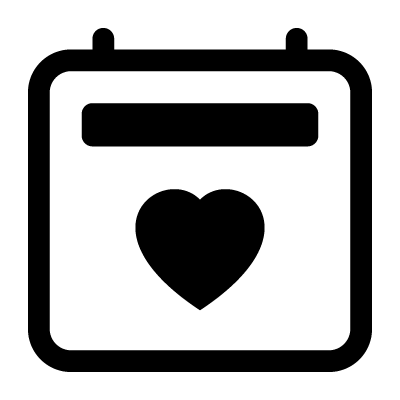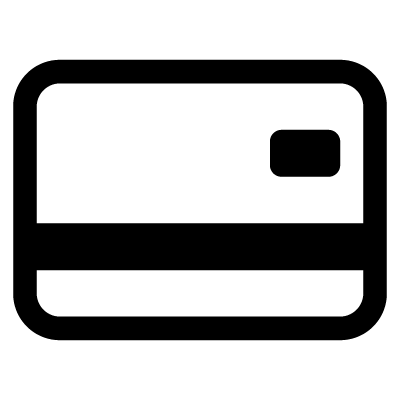The Ultimate Guide: Materials You Can Engrave with The Customizer Engraving Pen
Engraving is a versatile and creative way to personalize and decorate lots of materials, and The Customizer Engraving Pen is the perfect tool for the job. It doesn’t matter if you're a beginner or a professional engraver, this powerful and easy-to-use pen can handle a wide range of surfaces. In this guide, we'll explore some of the different materials you can engrave with The Customizer and provide some tips and tricks for each one.
-
Wood

Wood is one of the most popular materials for engraving. The Customizer can handle everything from softwoods like pine to hardwoods like oak and maple.
Tips: For a pronounced, noticeable engraving, always use a carbide burr. For small, intricate details, the ball and pointy bits are recommended—though they create more superficial engravings. The ball bit is also great for removing any chips or debris left behind during engraving.
-
Glass

Engraving on glass can create stunning designs on items like wine glasses, mirrors, and window panes.
Tips: When engraving on glass, always use the ball bits for any type of work—they're essential. The flame bits can be used for creating small shadows, while the square bits are perfect for filling in areas. Avoid using the pointy bits, as they're not effective on glass. And remember, always wear safety goggles and a mask to protect yourself from inhaling glass dust.
-
Metal

The Customizer can engrave various metals, including aluminum, brass, copper, and stainless steel. Personalize jewelry, tools, or decorative items with ease.
Tips: For bold lines, use carbide burrs, but be cautious with hard metals as they can dull the burrs quickly. For fine details, opt for diamond bits. Engrave slowly to prevent overheating the tool or the metal.
-
Plastic

From acrylic sheets to everyday plastic items, The Customizer can add intricate designs and labels to plastic surfaces.
Tips: Use diamond bits for detailed work, and opt for pointy or small ball bits for best results on plastic. Apply steady pressure—melting is unlikely, but consistent control will yield smoother engravings.
-
Leather

Engraving on leather can give your projects a professional and artistic touch, perfect for customizing belts, wallets, and bags.
Tips: Use a carbide bit for bold, deep engravings on leather, and a fine-point bit for intricate details. Always test on a scrap piece first to fine-tune depth and pressure.
-
Stone

Engraving on stone, such as granite, marble, and river rocks, can create beautiful decorative pieces.
Tips: Use diamond bits and spray the stone with water to minimize dust and keep the bit cool. Work slowly for the best results, and for sandy stones, these bits work particularly well. The Stone grinding bits are also awesome for this material.
-
Ceramic

@aleegraphy.shop
Engraving on ceramic items like tiles, mugs, and plates can add a personalized touch to your home decor.
Tips: Use diamond bits and go slow to prevent chipping. If the ceramic is glazed, engraving may not work well, so it's best to test a small area first. Clean the surface before engraving to remove any dust or oils.
-
Shells

Natural materials like seashells can be engraved to create unique jewelry and decorations.
Tips: Use fine-point diamond bits and engrave gently to avoid cracking the shell. Clean and dry the shell thoroughly before starting.
-
Bone and Antler

For those interested in more unique materials, bone and antler can be engraved to make beautiful, rustic items.
Tips: Use carbide burrs for deep cuts and diamond bits for fine details. Wear a mask to avoid inhaling bone dust.
-
Jewelry

Personalizing jewelry like rings, bracelets, and pendants with The Customizer can make for meaningful and unique gifts.
Tips: For precise engraving, use fine-point diamond bits and ensure the jewelry piece is securely fastened to prevent slips. For the best results, opt for the smallest ball bit available; the smaller the ball, the more accurate your engraving will be.
-
Glass Beads

@alenalight
Small glass beads can be engraved to create custom designs for jewelry and crafts.
Tips: Use very fine diamond bits and work slowly. Handle the beads carefully to avoid breakage.
-
Wax

Engraving on wax can be useful for creating custom stamps and seals, or even candles.
Tips: Use fine-point bits and light pressure. Wax is soft, so work delicately to avoid removing too much material.
-
Paper and Cardboard

@kauri_paperstudio
Engraving on thick paper and cardboard can add a sophisticated touch to invitations and cards.
Tips: Use fine-point bits and light pressure. Secure the paper firmly to avoid tearing.
Tips and Tricks for Engraving

@jendiarenzocreative
- Safety First: Always wear appropriate safety gear, such as goggles and masks, especially when working with materials that produce dust or shards.
- Secure Your Work: Use clamps or a vice to hold your material steady while engraving to prevent slips and ensure precise designs.
- Practice Makes Perfect: Test your designs on scrap pieces of the material before engraving the final product. This helps you get a feel for the tool and how it interacts with different surfaces.
- Clean Up: After engraving, clean your bits and the engraved surface to remove any debris. This keeps your tools in good condition and ensures a clean, finished look.
Conclusion
The Customizer Engraving Pen is a versatile tool that can handle a wide array of materials, letting you personalize and enhance everyday items easily. From wood and glass to metal and leather, the possibilities are endless. With the right techniques and a bit of creativity, you can turn any material into a canvas for your artistic expression. Happy engraving!







7 comments
Great help for this beginner. Added oil paints that you can manipulate with water to paint on the wood I stenciled. It came out perfect!! I am going to share my first attempts with the art group I’ve joined! Thanks so much for your efforts to help we beginners!! Judy
So thrilled with my new companion, was not going to start another craft at 88yrs but here I go again and loving it